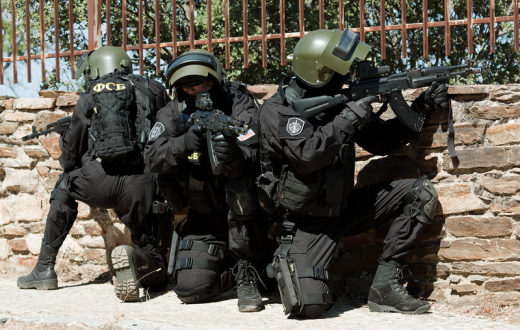By Shehab Al-Makahleh •
Today’s terrorist attack on St. Petersburg’s metro is one in a long line of deadly terrorist attacks that have targeted Russia since 1995. The estimates put the number of terrorist attacks in Russia in this period at over 800, with a death toll of more than 3,500. While rather similar to the Moscow metro attack in 2010 around the same time of the year, these details are of less consequence. What is more important to consider is the bigger picture, of the time and context.
One Russian commentator on EuroNews said that today’s atrocity will most certainly work against government and in particular against its powerful and skilled security forces (FSB), further undermining the public trust in the security services. However, the same commentator believes that attack won’t affect President Putin directly, as he is well protected and also a symbol of the nation. However, one must not forget that in the past several months eight of Russia’s senior diplomats have died sudden deaths on foreign soil, most recent being Russia’s UN Ambassador Vitaly Churkin.
The attack follows closely recent demonstrations in a number of Russian cities against the government corruption, which the current government has been fighting as fiercely as it has terrorism―the two key enemies of the national stability and the security as often stated by the Russian president himself. The demonstrations have been rumored to have had foreign, the usual suspect Soros-linked funders―as shown by some leaked admissions of arrested demonstrators that they were promised large sums of money for their participation. Along with photos of demonstrators smiling while being taken into custody by the ’brutal security forces’, the story has a familiar ring to it.
Moreover, the demonstrators were not all ‘peaceful’, as claimed by the Western media, as there was evidence of fire arms seized by the security forces from some of the protesters. Moreover, similar ‘demonstrations’ have been recently witnessed by Russia’s sisterly neighbor Belarus, while today’s attack happened during an important meeting between, coincidentally none other but the presidents of Russia and Belarus; and parallel with an underreported ISIS attack on Russian embassy in Damascus.
Also noteworthy is that just as the pressure on Iran is growing in the US government, hand in hand goes attempted united Arab action against the ‘threat’ by the Persian Shi’a neighbor ― and Russia’s key partner in the fight against terrorism in Syria, and another staunch supporter of the Syrian president Assad.
All this is happening at the crucial moment when ISIS/Daesh―the synonym of the modern-day terrorism is being crushed forcefully in both Iraq and Syria, while the US government proclaims policy change towards Syrian president Assad.
So what is the broader context of this attack and what are the lessons to be taken by the West? Why blaming Russia for anti-terrorist support it lends to Syria is wrong, as is its anti-Russian rhetoric, and why international collaboration with Russia against international terrorism should be a policy priority for both EU and the US?
Because Russia is the number one European country with the highest number of terrorist attacks and the lives lost to terrorism. Because it indeed fights the menace of terrorism first and foremost due to its own national security concerns. Because unlike her European neighbors Russia has shared technical and intelligence expertise in counter-terrorism with many countries, and has never supported―overtly or covertly any terrorist groups, again in stark contrast with her ‘more democratic’ Western counterparts.
To conclude, understanding Russia’s resolve in the face of adversity is the key to understanding its possible reaction to this attack. Not only that this attack will not shatter the government or its resolve to protect its national security and its people, but taking historic lessons from Russian more dangerous enemies in the past (Napoleon, Hitler, and most recently Chechen Islamist terrorists responsible for majority of terrorist attacks on Russian soil since 1995) ― the enemy will be decisively defeated. Most importantly the lesson of how Russia dealt with the problem of Chechnya and how it has turned the once fierce enemy into a loyal ally―including in its fight against terrorism in Syria is the blueprint that would most likely be followed, but also one that international community should adopt and lend its full support to Russia in its one-nation brave fight against a common enemy.
Shehab al-Makahleh is a co-founder of Geostrategic Media, Senior Media and Political Adviser in the Middle East
 Geostrategic Media Political Commentary, Analysis, Security, Defense
Geostrategic Media Political Commentary, Analysis, Security, Defense





